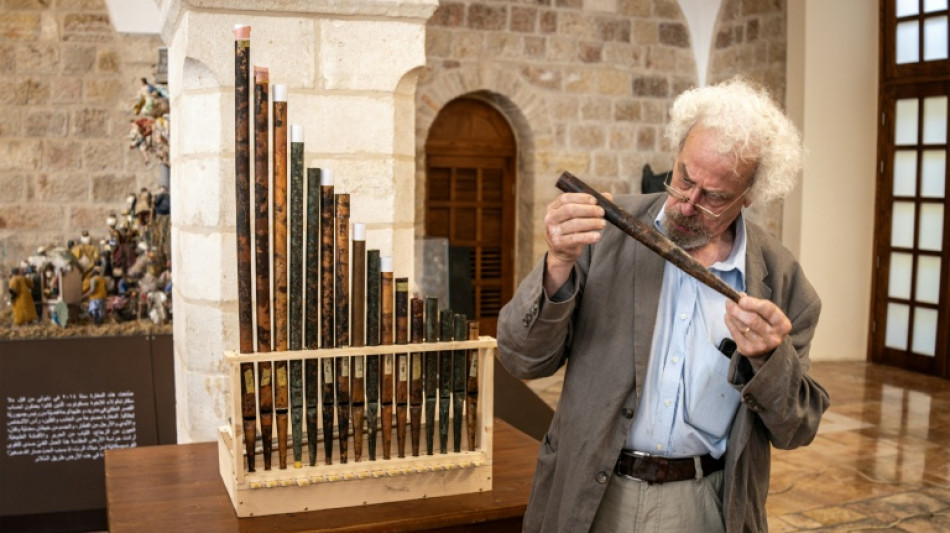
-
 Traore backs 'hungry' Italy against France in Six Nations
Traore backs 'hungry' Italy against France in Six Nations
-
All-rounder Curran brings stuttering England to life at the death

-
 South Korea court weighs death sentence for ex-president Yoon
South Korea court weighs death sentence for ex-president Yoon
-
Tech chiefs address India AI summit as Gates cancels

-
 Australia rejects foreign threats after claim of China interference
Australia rejects foreign threats after claim of China interference
-
Somali militias terrorise locals after driving out Al-Qaeda

-
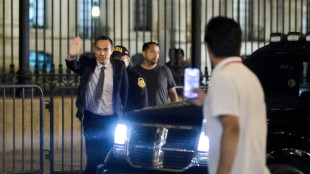 Peru picks Balcazar as interim president, eighth leader in a decade
Peru picks Balcazar as interim president, eighth leader in a decade
-
Australian defence firm helps Ukraine zap Russian drones

-
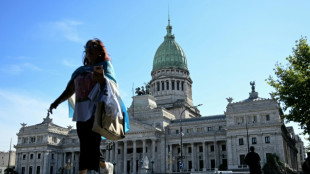 General strike to protest Milei's labor reforms starts in Argentina
General strike to protest Milei's labor reforms starts in Argentina
-
Cuban opposition figure Ferrer supports Maduro-like US operation for Cuba
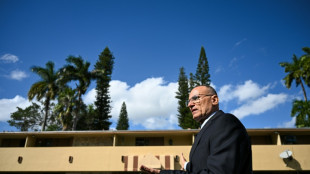
-
 High-stakes showdown in Nepal's post-uprising polls
High-stakes showdown in Nepal's post-uprising polls
-
Asian markets rally after Wall St tech-led gains

-
 After Greenland, Arctic island Svalbard wary of great powers
After Greenland, Arctic island Svalbard wary of great powers
-
Veteran Slipper set for new Super Rugby landmark

-
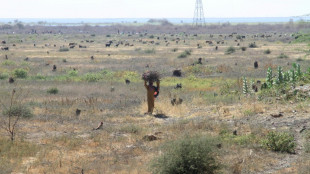 Sudan's historic acacia forest devastated as war fuels logging
Sudan's historic acacia forest devastated as war fuels logging
-
Deadly Indonesia floods force a deforestation reckoning

-
 Australia vow to entertain in bid for Women's Asian Cup glory
Australia vow to entertain in bid for Women's Asian Cup glory
-
Afghan barbers under pressure as morality police take on short beards

-
 Jail, disgrace and death: the dark fates of South Korean leaders
Jail, disgrace and death: the dark fates of South Korean leaders
-
S. Korea court weighs death sentence for ex-president Yoon

-
 MotoGP dumps Phillip Island for Adelaide street circuit
MotoGP dumps Phillip Island for Adelaide street circuit
-
Trump kicks off his 'Board of Peace,' with eye on Gaza and beyond
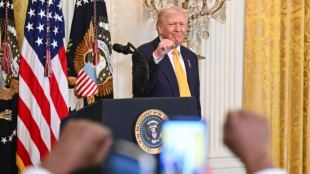
-
 Walmart results expected to highlight big plans for AI
Walmart results expected to highlight big plans for AI
-
Australia Olympic TV reporter apologises after slurring words

-
 USA and Canada on course to meet for Olympic men's ice hockey gold
USA and Canada on course to meet for Olympic men's ice hockey gold
-
Bodo/Glimt stun Inter, Gordon hits four in Newcastle Champions League romp

-
 Arteta urges Arsenal to 'stand up' after title bid rocked by Wolves draw
Arteta urges Arsenal to 'stand up' after title bid rocked by Wolves draw
-
McIlroy aims to eliminate 'big numbers' in pursuit of first Riviera title

-
 PM Modi, top tech bosses to address India AI summit
PM Modi, top tech bosses to address India AI summit
-
Bad Bunny to star in movie about Puerto Rico

-
 Arsenal blow two-goal lead in damaging Wolves draw
Arsenal blow two-goal lead in damaging Wolves draw
-
Habib Beye appointed coach of Marseille

-
 Sloppy Atletico held in six-goal Brugge thriller
Sloppy Atletico held in six-goal Brugge thriller
-
Schick steers Leverkusen past Olympiacos in Champions League

-
 Hogh stars as Bodo/Glimt down Inter in Champions League
Hogh stars as Bodo/Glimt down Inter in Champions League
-
Oil prices jump on toughening US posture on Iran as US stocks advance
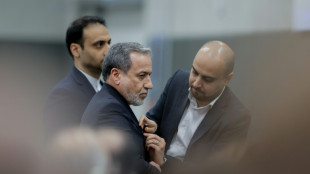
-
 Gu's exchange with AFP at Winter Olympics goes viral
Gu's exchange with AFP at Winter Olympics goes viral
-
Hamilton feeling 'connected' to new Ferrari car at test sessions

-
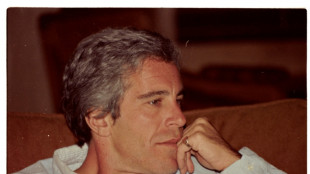 US lingerie magnate says was 'conned' by Epstein
US lingerie magnate says was 'conned' by Epstein
-
Marner fires Canada into Olympic ice hockey semis, as Finland survive

-
 Israel conducting 'gradual de facto annexation' of W.Bank: UN official
Israel conducting 'gradual de facto annexation' of W.Bank: UN official
-
Alcaraz, Sinner cruise into Qatar Open quarter-finals

-
 Mavs confirm Irving will miss rest of NBA season
Mavs confirm Irving will miss rest of NBA season
-
Environmental groups sue Trump administration over scrapped climate rule

-
 Major US naval, air buildup sets stage for potential Iran war
Major US naval, air buildup sets stage for potential Iran war
-
White House tells Iran to do deal as Trump hints at US strikes

-
 Gordon scores four as Newcastle hit Qarabag for six
Gordon scores four as Newcastle hit Qarabag for six
-
French far-right leader accuses Macron, allies of strengthening hard-left after activist killed
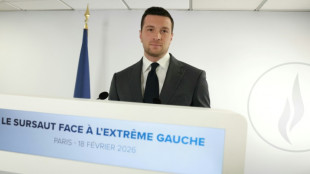
-
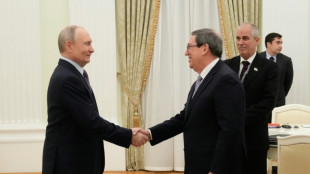 Putin says Russia 'always' stands by Cuba, slams US sanctions
Putin says Russia 'always' stands by Cuba, slams US sanctions
-
England's Joe Heyes says Princess Anne mistook him for Joe Marler


Silent for 800 years, medieval organ sings again in Jerusalem
The pipes of a medieval organ, buried for centuries and discovered near the Church of the Nativity in Bethlehem in the occupied West Bank, are once more filling a Jerusalem monastery with ancient melodies.
"This is a window into the past... we have the opportunity for the first time in modern history of listening to a medieval sound which is a thousand years old," said David Catalunya, a Spanish researcher who has worked for more than five years to bring the 11th-century instrument back to life.
"And it's not through a recreation or a hypothetical reconstruction, but it's really the original sound: the same vibration that the Crusaders heard at the Nativity Church," he told AFP.
Dating nearly as far back as the invention of the instrument itself, it was discovered in 1906 at the Biblical birthplace of Jesus Christ.
Catalunya pulls on small tabs to play the organ -- which he fondly refers to as a "miracle" -- expelling a formidable ringing from the otherwise modest wooden instrument.
Currently housed in the Monastery of Saint Saviour in Jerusalem's Old City, the instrument is set to be displayed in a museum of the Franciscan Custody of the Holy Land.
"It's like finding a living dinosaur, because it's something we knew existed but we only know from fossils, so there's very limited evidence," said Alvaro Torrente, a musicologist who participated in the restoration project.
"This is not a fossil, this is the real object and the real sound," he told AFP.
- Chance discovery -
It was discovered "almost by chance", according to Father Eugenio Alliata, a Franciscan archaeologist attached to the mission in charge of several holy sites, including the Church of the Nativity in Bethlehem.
During construction of a pilgrim hostel, a set of 222 copper pipes and a bell carillon were unearthed near the site.
It was seemingly buried with "utmost care", according to Catalunya, meaning researchers were able to reconstruct the instrument with painstaking care.
Koos van de Linde, one of the world's leading organ specialists who also consulted on the project, said that "the hope the Crusaders who buried these pieces had, that one day they would resound again, was not in vain.
"It was an immense honour to witness and participate in their resurrection," he continued.
To the experts, the instrument is unique not just for its complexity -- 18 pipes producing a single note -- or what Catalunya says is an "incredible state of preservation", but also its antiquity.
While the oldest organs studied by historians are from the 15th century, this one was built in the 11th century in France before being transported to Bethlehem by Crusaders in the 12th century, Catalunya said.
"The Christians of Europe brought to the Church of the Nativity in Bethlehem the most avant-garde musical instrument used at the time in liturgy: the organ, an instrument designed to become the emblem of sacred music," Torrente told AFP.
He hopes the discovery will spark more interest in what the research team simply calls the "Bethlehem organ", which Torrente says has not yet sung all its tunes.
F.Dubois--AMWN
